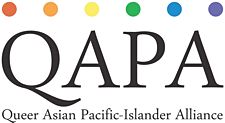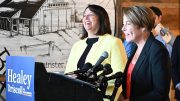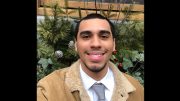 By: Maxwell Ng*, Debasri Roy*, and Ben de Guzman*/Special to TRT—
By: Maxwell Ng*, Debasri Roy*, and Ben de Guzman*/Special to TRT—
Former Representative Barney Frank’s response to Senator Leahy’s decision to withdraw the amendments that would support LGBT binational couples to S744: The Border Security, Economic Opportunity, and Immigration Modernization Act, during the bill’s markup, recognizes the challenging divide before the Senator. By dropping these amendments, he would potentially alienate the LGBT constituency; but on the other hand, the threats of a breakdown of the entire bill on this one issue was real for the Senator. Representative Frank is certainly no stranger to tough decisions about legislation. In 2007, his work on the Employment Non-Discrimination Act (ENDA) created controversy and dialogue within the LGBT community, whose ripple effects can still be felt. Because this is a broader bill and begins to provide some much needed relief for LGBT immigrants, what is needed is not narrowly defined identity politics about which provision serves which community, but both a nuanced analysis of how LGBT communities (immigrant and citizen alike) are affected by this legislation, and a commitment to do better. [pullquote]… what is needed is not narrowly defined identity politics about which provision serves which community, but both a nuanced analysis of how LGBT communities (immigrant and citizen alike) are affected by this legislation, and a commitment to do better.[/pullquote]
We represent the Queer Asian Pacific-Islander Alliance (QAPA) and Massachusetts Area South Asian Lambda Association (MASALA), local organizations based in Boston, as well as the National Queer Asian Pacific Islander Alliance (NQAPIA). As Asian Americans/ Pacific Islanders (AAPIs) who also identify as LGBT, we understand the potential impact of these compromises. As Massachusetts locals, we are thankful for Barney Frank’s service as a leader in LGBT politics, however we emphasize that his voice is not a current representation of the diverse demographics of the LGBT population. We join a growing chorus of voices that recognize the multiple ways in which our intersecting communities have a stake in the current immigration proposal.
We consider any attempt to pit the LGBT community against immigrant rights advocates as a false choice. The current broken immigration system affects the LGBT community in a variety of ways, not just those of us who are in binational couple relationships. There are a number of areas in immigration that need reform that affect many of us who are LGBT. At a recent Boston LGBT Immigration Forum we hosted, an LGBT identifying young person shared her story about the emotional impact of her father’s deportation due to antiquated immigration laws. Her experience reflects the often unseen but just as real consequences of an immigration system that no longer addresses the needs of those who wish to live the American dream. [pullquote]As Massachusetts locals, we are thankful for Barney Frank’s service as a leader in LGBT politics, however we emphasize that his voice is not a current representation of the diverse demographics of the LGBT population.[/pullquote]
Additionally, the removal of family immigration categories emphasizes the merit based hierarchy of criteria such as education, employment, and country of origin. These were previously taken into consideration but were not the basis for admission. Many of us share rich personal stories about how our immigrant ancestors came to this country. These stories would not exist if family categories were removed. Today, there are approximately 4 million people trapped in the backlog of family petitions, almost half of which are waiting to reunite with Asian American families, many of which include LGBT members. As S744 moves to the Senate floor, we know that there will be additional opportunities to fight for an inclusive immigration reform.
We are committed to compassionate and comprehensive immigration reform, and we will continue to fight for legislation that achieves this. It is an overdue and necessary step forward for a strong and diverse modern America. [pullquote]As Massachusetts locals, we are thankful for Barney Frank’s service as a leader in LGBT politics, however we emphasize that his voice is not a current representation of the diverse demographics of the LGBT population.[/pullquote]
*Maxwell Ng, Queer Asian Pacific-Islander Alliance (QAPA)
*Debasri Roy, Massachusetts Area South Asian Lambda Association (MASALA)
*Ben de Guzman, National Queer Asian Pacific-Islander Alliance (NQAPIA)
[From a News Release]







